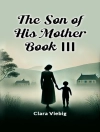In 'The English Orphans; Or, A Home in the New World, ’ Mary Jane Holmes crafts a compelling narrative that explores themes of resilience, family, and the quest for belonging in the face of adversity. Set against the backdrop of the 19th-century American landscape, Holmes employs a rich, descriptive literary style that draws readers into the emotional experiences of her characters. The novel not only reflects the social realities of orphans during a time of transition but also engages with broader issues of immigration and the American Dream, thus situating itself within the context of post-colonial literature and the evolving identity of the New World. Mary Jane Holmes was a prolific writer in the 19th century, known for her keen observations on social issues through the lens of personal narratives. Born in 1825, she drew inspiration from her experiences and the lives of those around her, often shining a light on marginalized voices. Her understanding of orphanhood, influenced by the societal conditions of her time, is deeply embedded in this work, showcasing both the struggles and the resilience of her characters. 'The English Orphans’ is a must-read for anyone interested in the intersection of personal history and broader societal themes. Holmes’ insightful exploration offers a nuanced perspective on the challenges of navigating a new life while preserving one’s identity, making this novel a compelling addition to the canon of American literature.
O autorze
Mary Jane Holmes (1825-1907) was a prolific American novelist and short story writer, renowned for her popular domestically themed narratives which resonated with the middle class of her era. Born in Brookfield, Massachusetts, Holmes was a literary prodigy who published around 39 novels throughout her life, including one of her well-regarded works, 'The English Orphans; Or, A Home in the New World’ (1855), which paints a vivid picture of the immigrant experience and the challenges of adapting to American society. In her literary career, Holmes often addressed themes of family, womanhood, and morality, and is credited with being one of the bestselling authors of her time. 'The English Orphans’, like many of her novels, reflects Holmes’s adeptness at creating strong female characters and engaging in social critique through narrative fiction. In Holmes’s hands, the novel became a tool not only for entertainment but also for subtly challenging the societal norms of her day. Her work is characterized by her empathetic portrayal of characters and intricately plotted stories which captivate readers. Despite the waning scholarly attention posthumously, Holmes’s contribution to nineteenth-century American literature and her influence on the development of sentimental and domestic fiction secure her place as a notable figure in the literary canon of her time.












